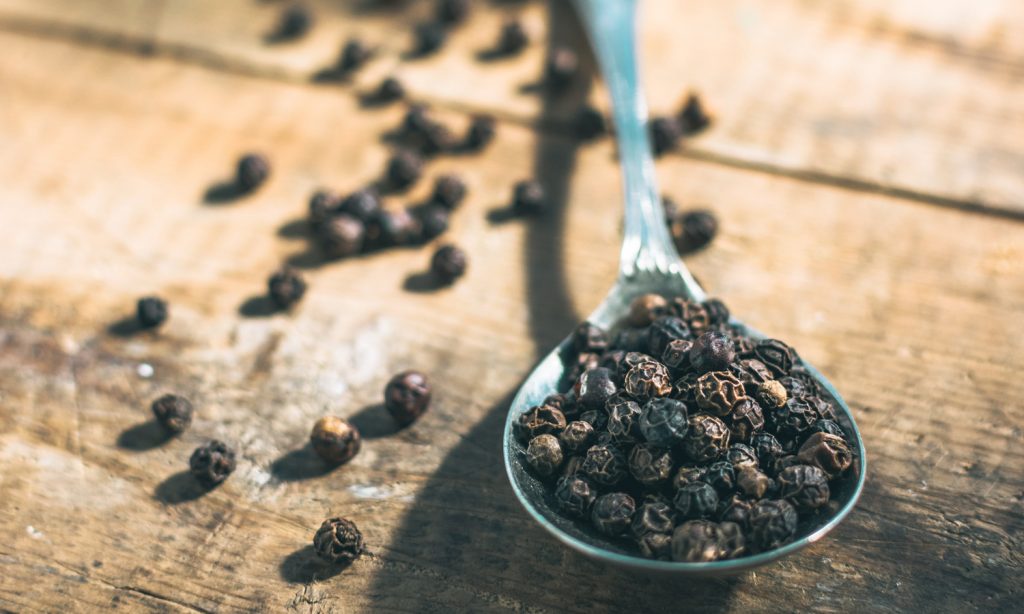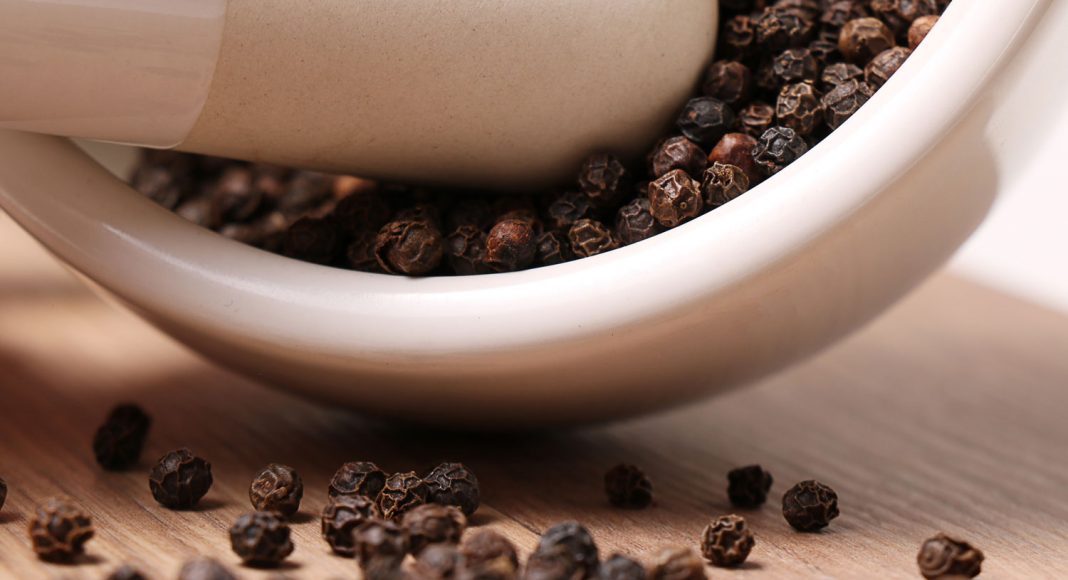Next time you’re experiencing marijuana-induced paranoia, we suggest listening to the wise words of Neil Young. No, Young’s lyrics won’t pacify your panic after smoking too much weed. Instead you’d have to listen to a 2014 Howard Stern interview, in which Stern confessed to not smoking marijuana as “it makes [him] paranoid.”
“Try black pepper balls if you get paranoid. Just chew two or three pieces,” Young responded. “I just found this out myself. Try it.”
Now, we expect a dubious reaction from readers on this advice. How could the basic condiment on your dining table solve high-minded anxiety and panic? Well, believe it or not, science backs up what Young is saying.
RELATED: Why Does Cannabis Make Some People Freak Out?
Whenever you consume cannabis flower, a complex reaction between various cannabinoids—including commonly known cannabinoids like THC and CBD—mix with various other plant properties to induce what’s known as the entourage effect. In its simplest explanation, the entourage effect occurs when these various plant properties collaborate to strengthen one another, and therefore become more effective. In other words, isolated CBD isn’t as potent as the CBD found in combination with THC and other cannabinoids.
Included in the cannabis plant equation are terpenes, which provide marijuana’s aroma and can be found across plant species outside cannabis. An article titled “Taming THC” from the Aug. 2011 issue of British Journal of Pharmacology: Cannabinoids in Biology and Medicine, Part 1 reports that scientists have discovered more than a hundred terpenes in cannabis. According to the report, these terpenes “may contribute meaningfully to the entourage effects of cannabis-based medicinal extracts.”

Basically, terpenes can affect the physiological sensations you experience from marijuana. Eating a mango, for example, 45 minutes or an hour before a smoking session will guarantee the THC high stays with you longer. That’s because mangoes contain myrcene, a terpene also found in cannabis that expands the maximum saturation levels in your endocannabinoid receptors.
According to Cannabis Digest, these different terpenes can produce different adjunctive effects. “Anecdotal evidence suggests that the terpene alpha-pinene is alerting, limonene is “sunshine-y,” and beta-myrcene is sedating,” writes Cannabis Digest’s Owen Smith.
Guess where alpha-pinene is predominant? That’d be black peppercorn. As the authors of “Taming THC” explain, pinene acts as “a potent inhibitor” to a THC-high run rampant. Put simply, the terpenes in black pepper work synergistically with THC to create a calming, therapeutic effect. Still not getting it? How about this? Ingesting black pepper tells your THC-high brain to chill the eff out.
The next trick, of course, is remembering all this the next time weed gives you mind-numbing anxiety and you think the cops are outside. Good luck.


